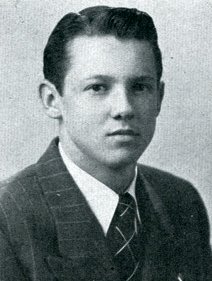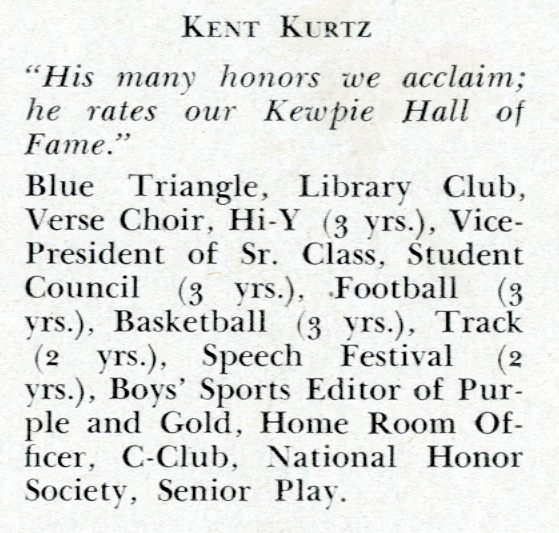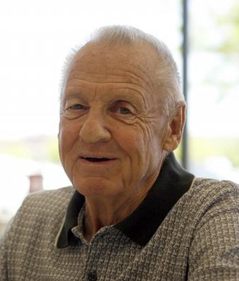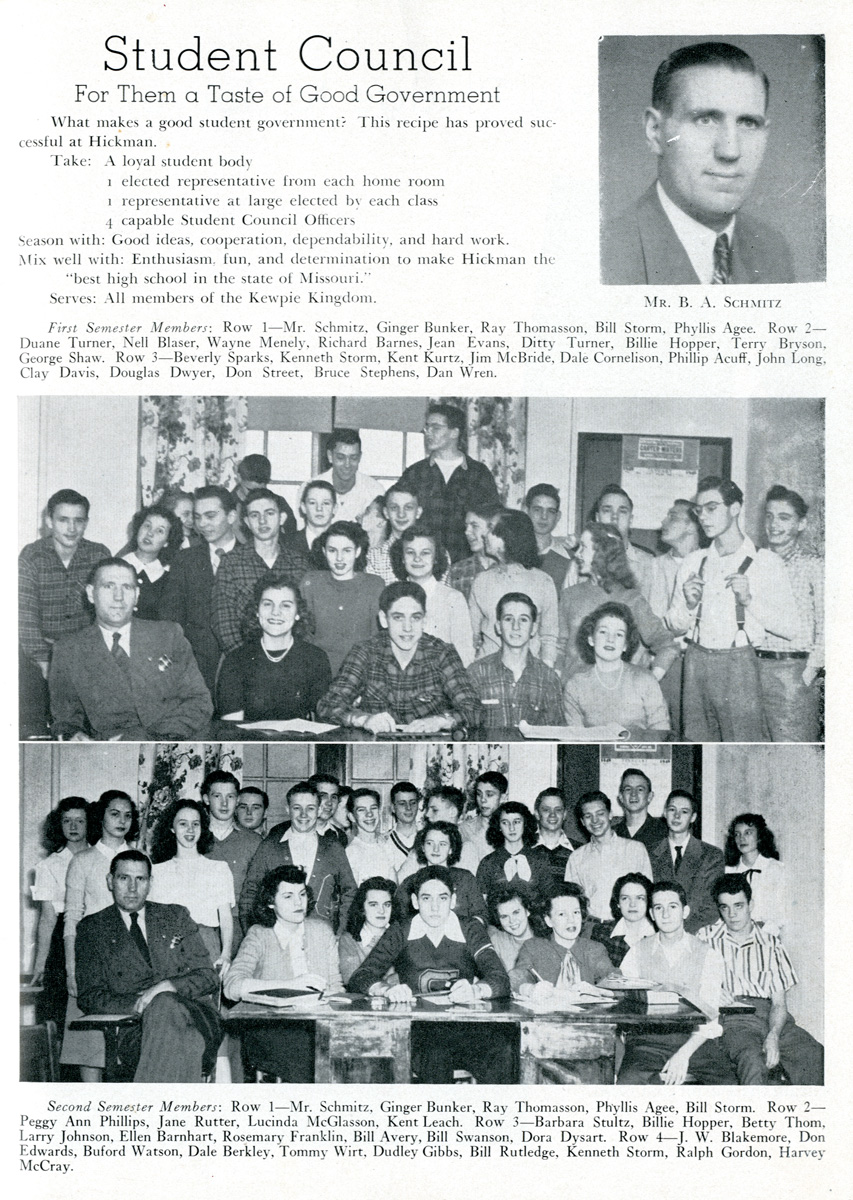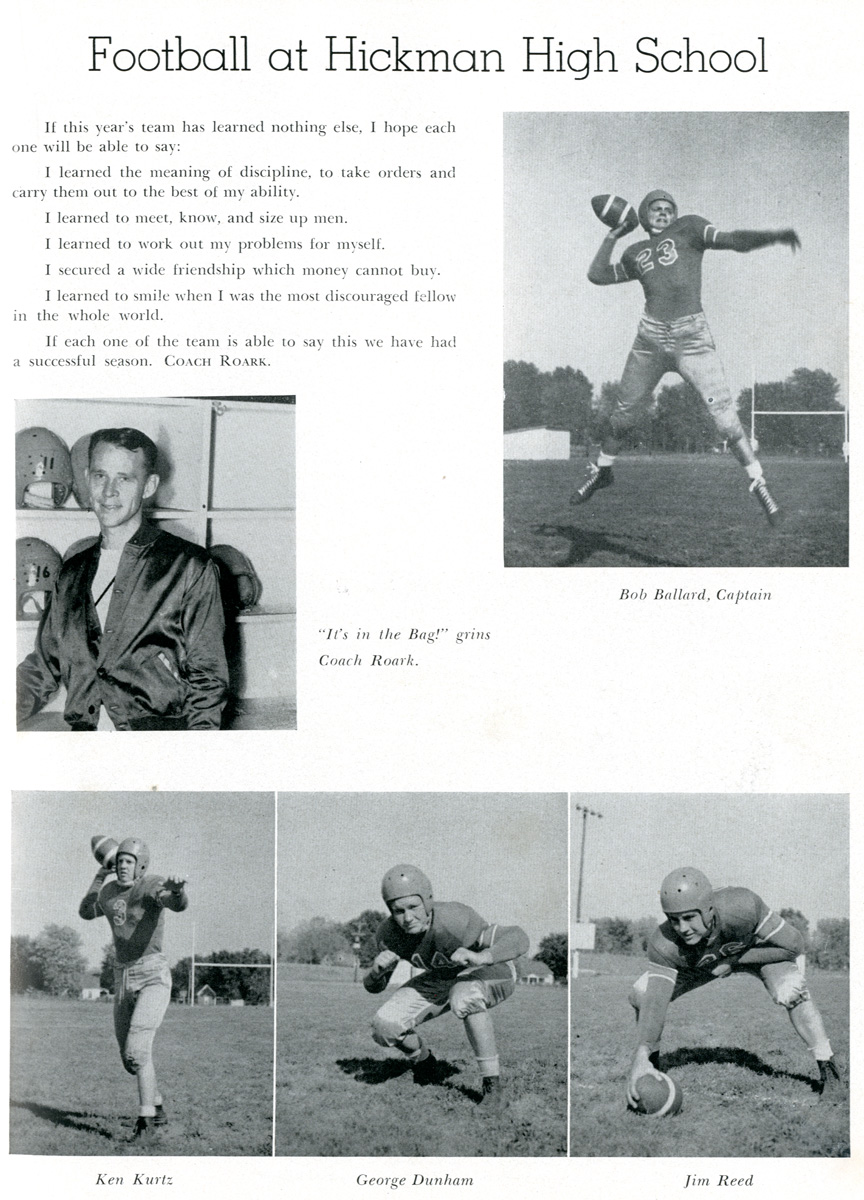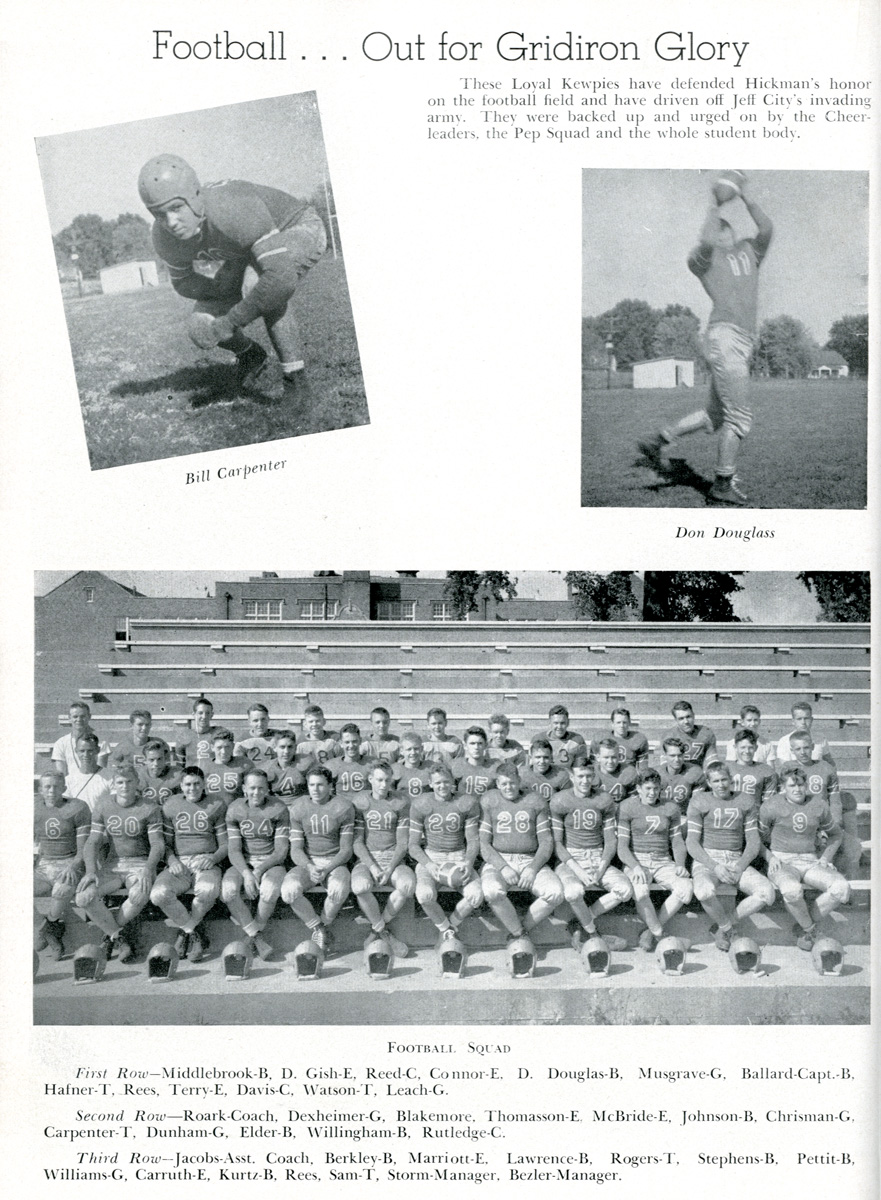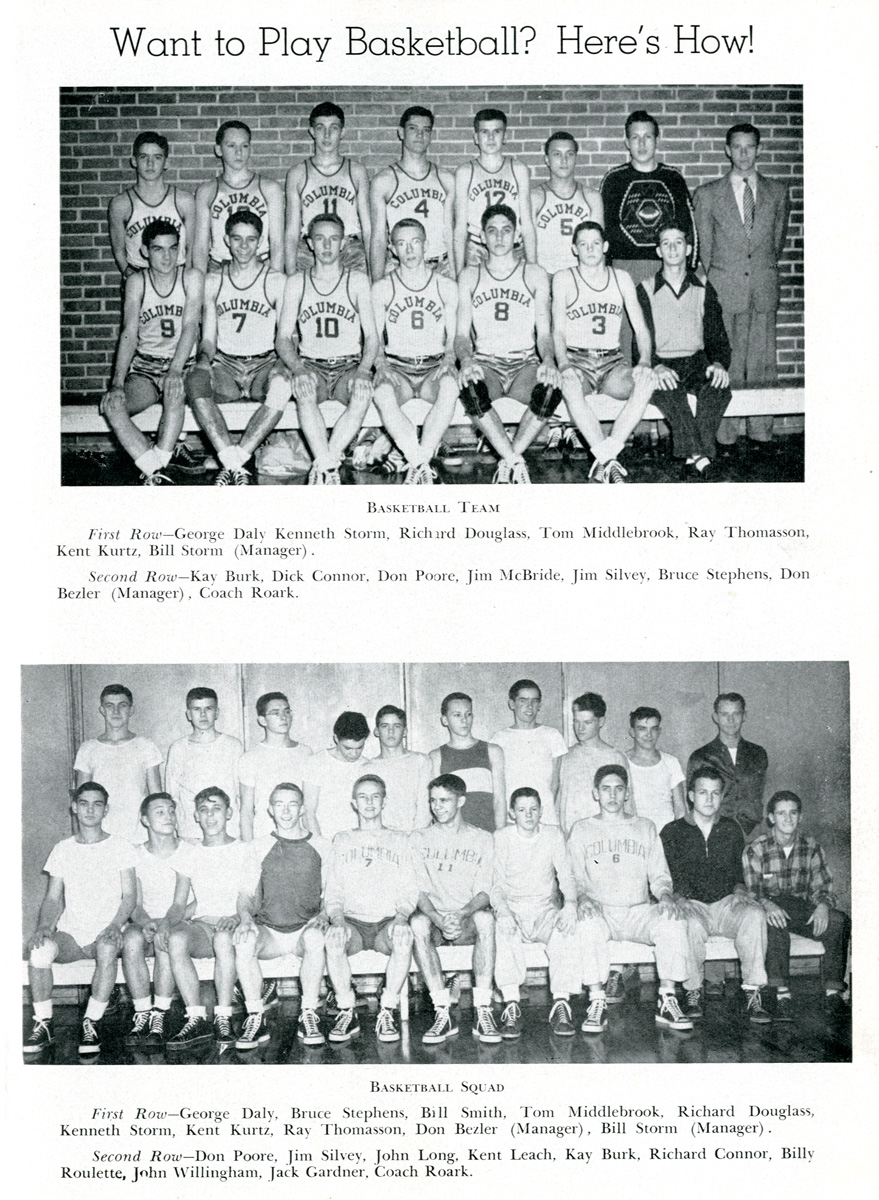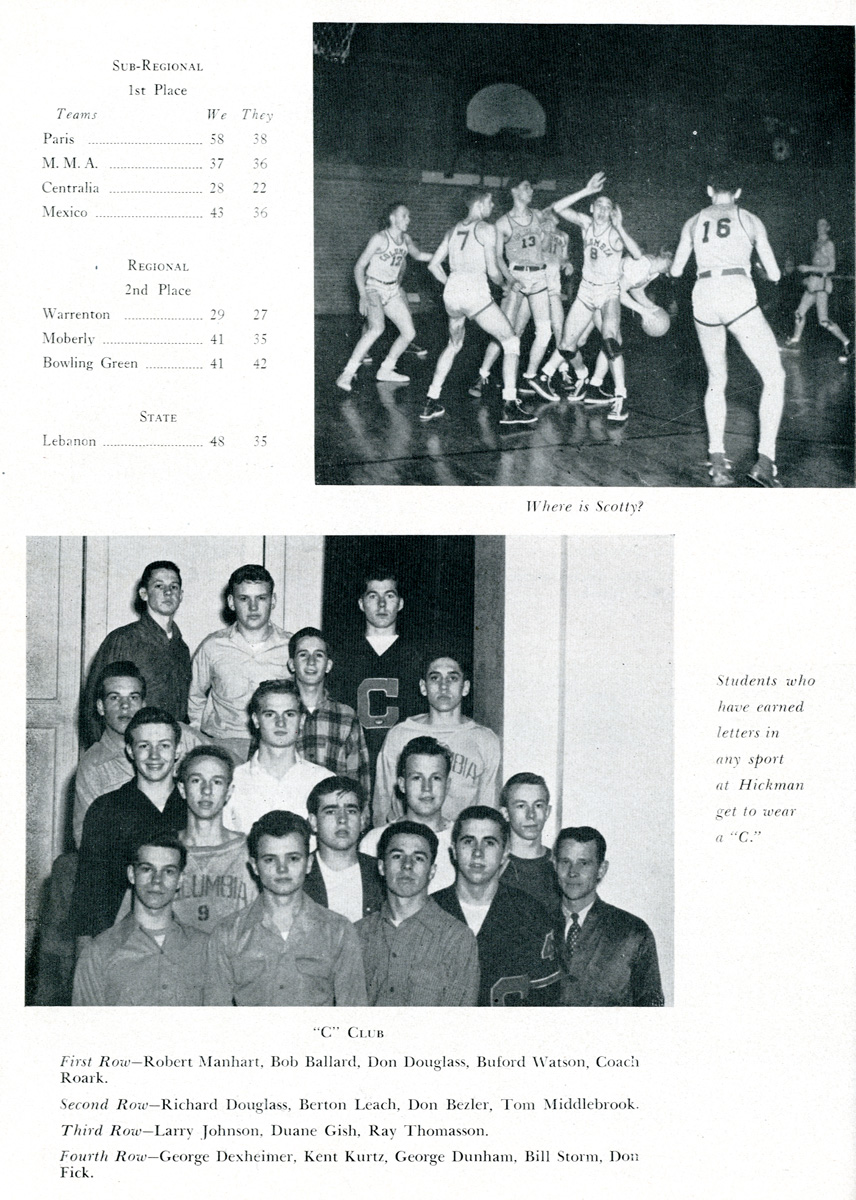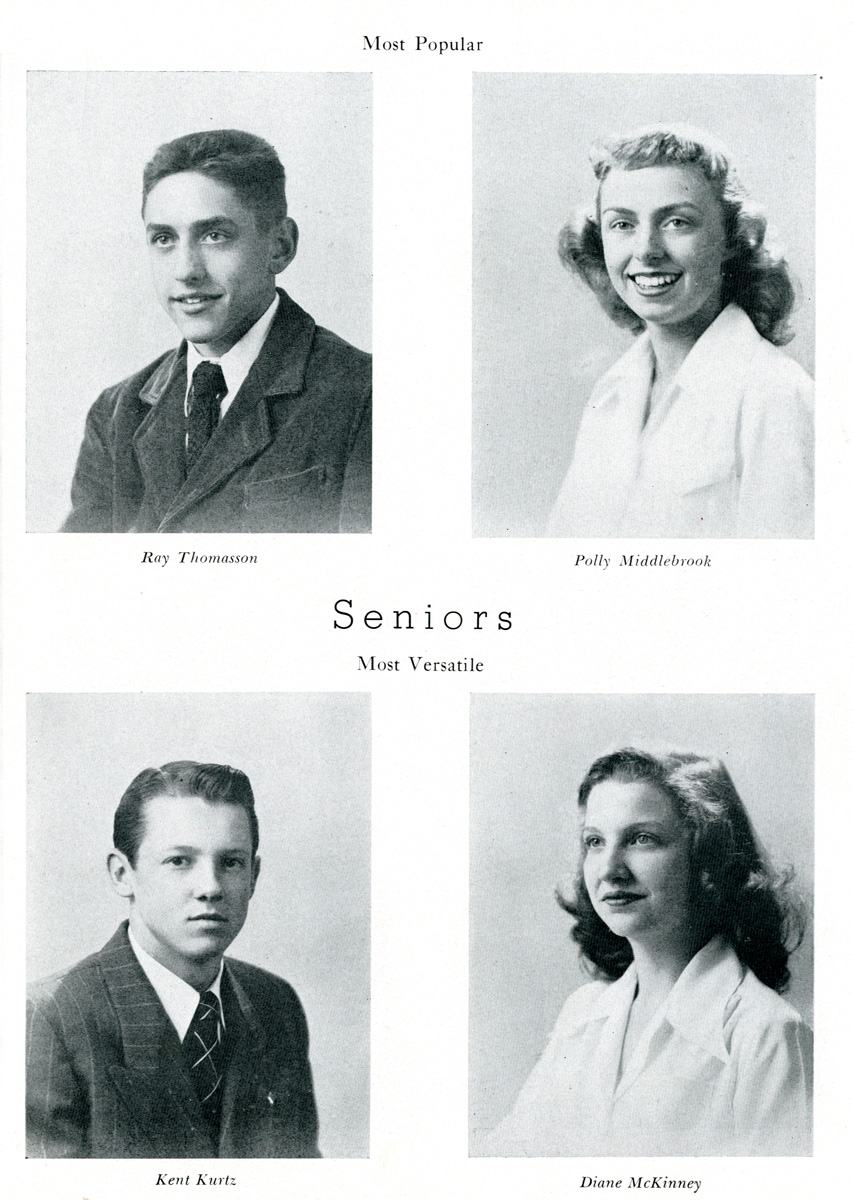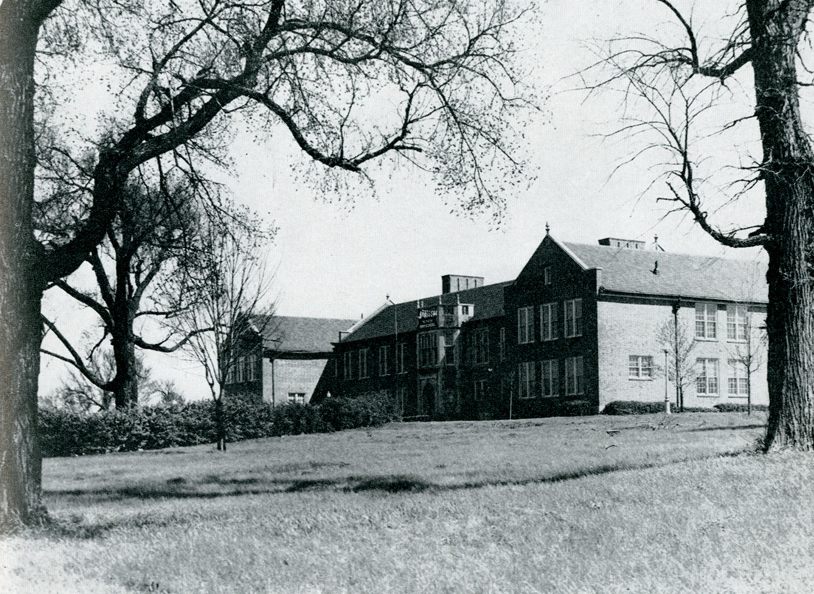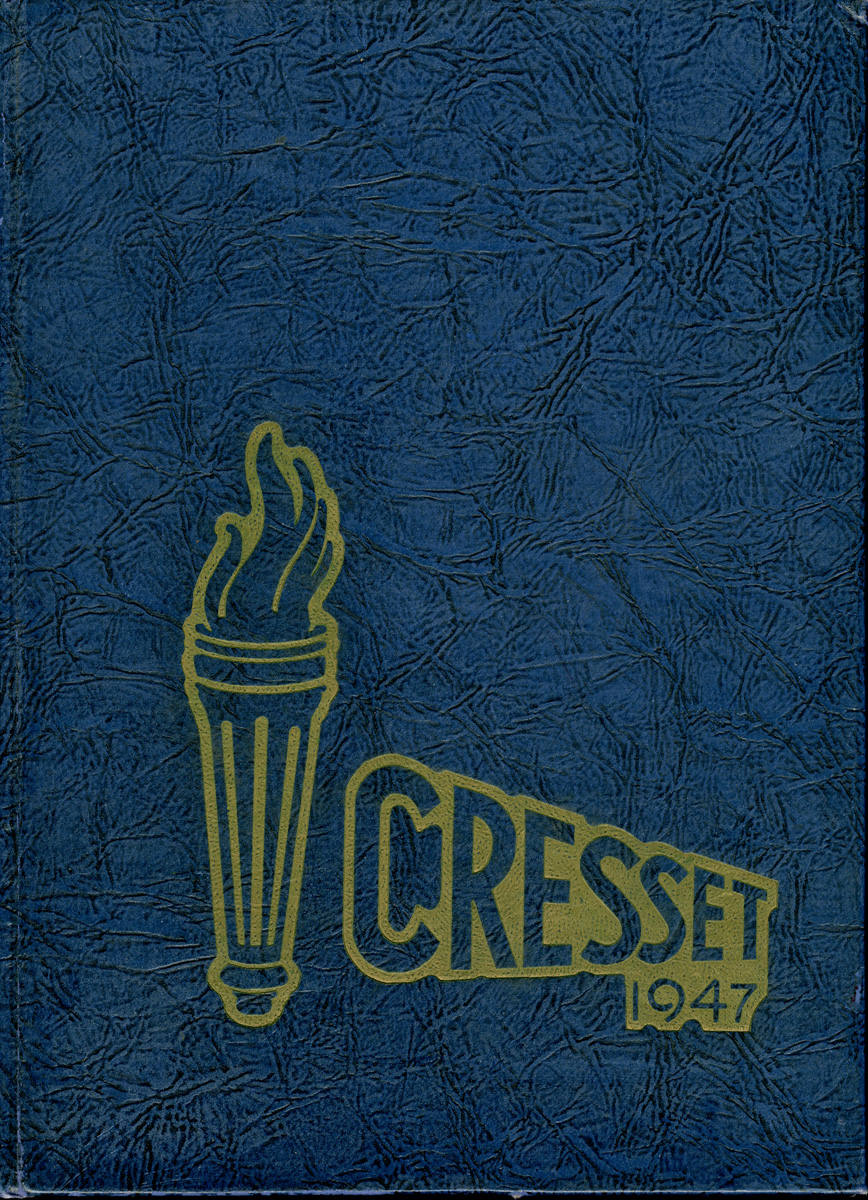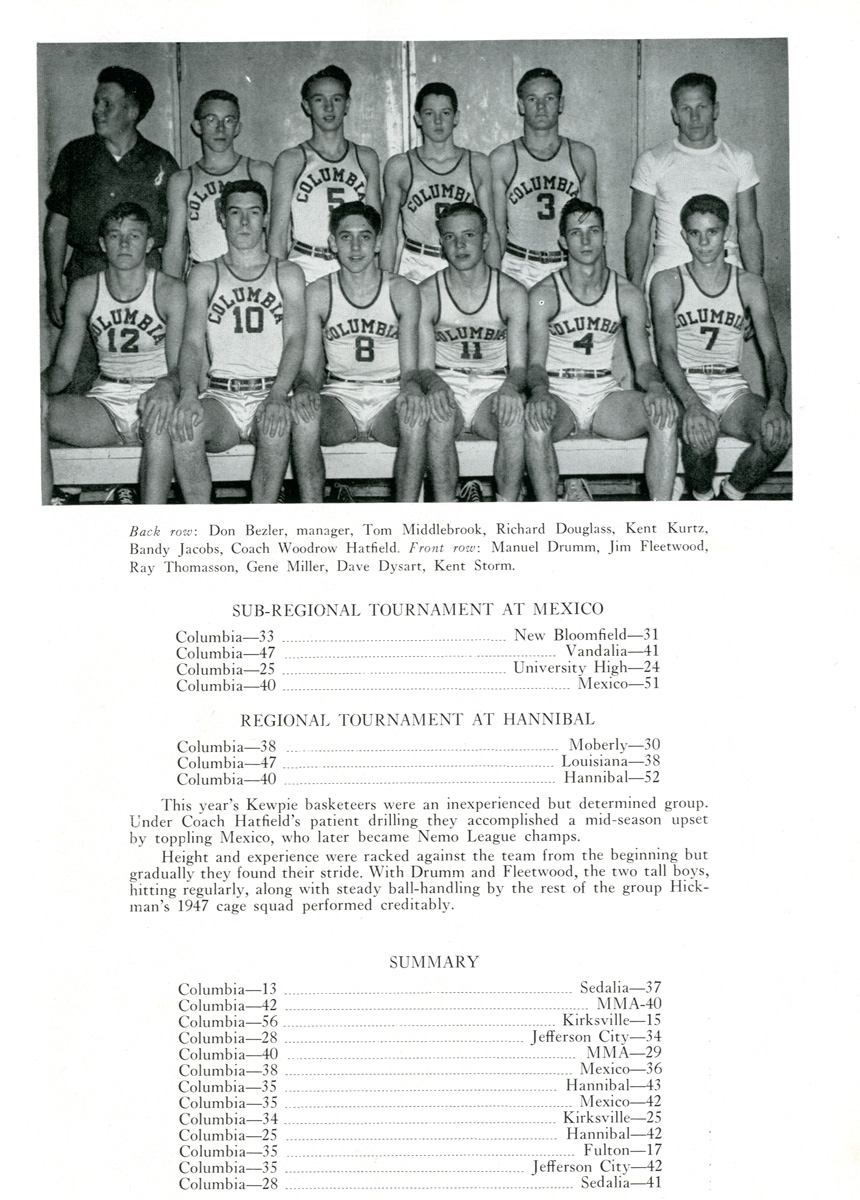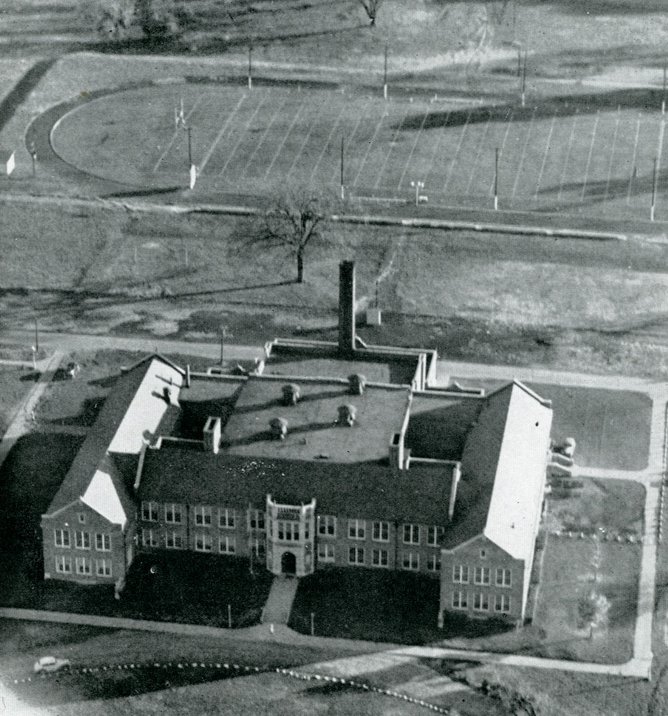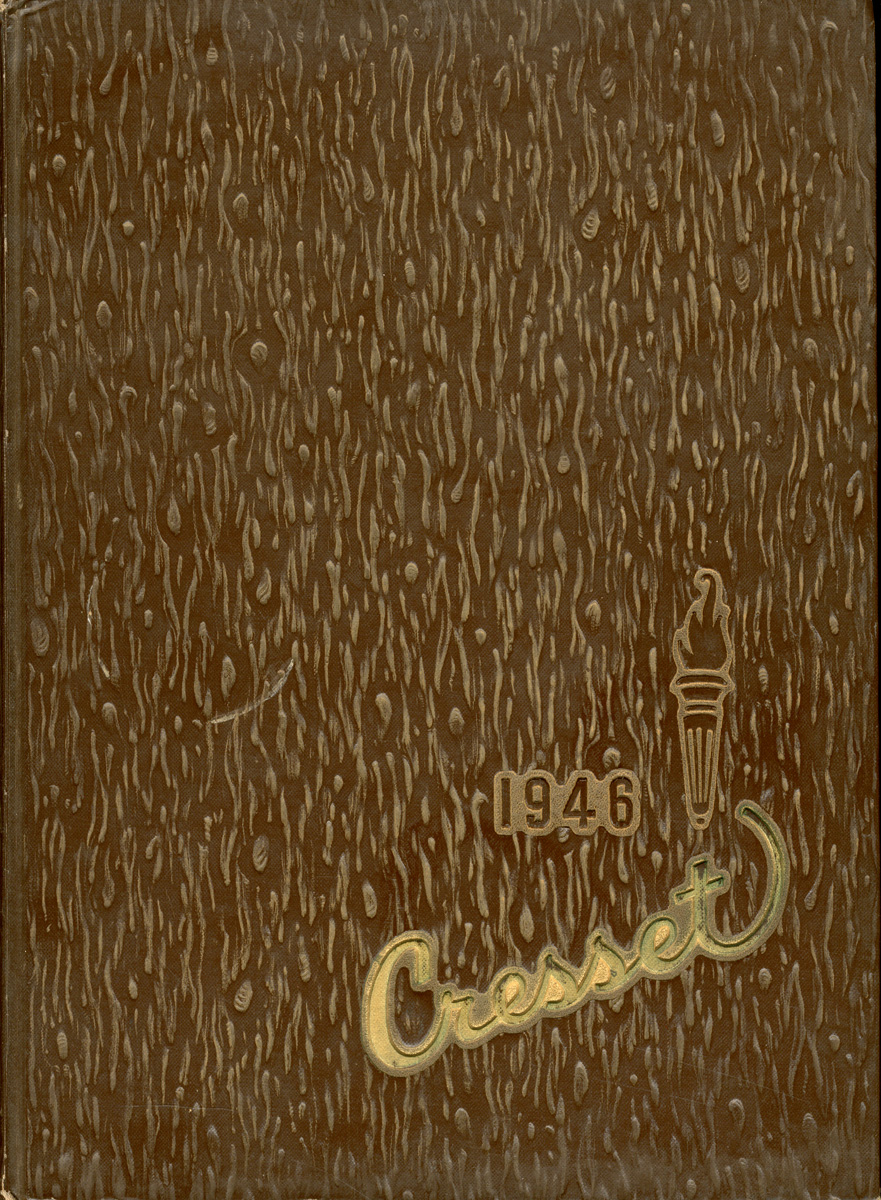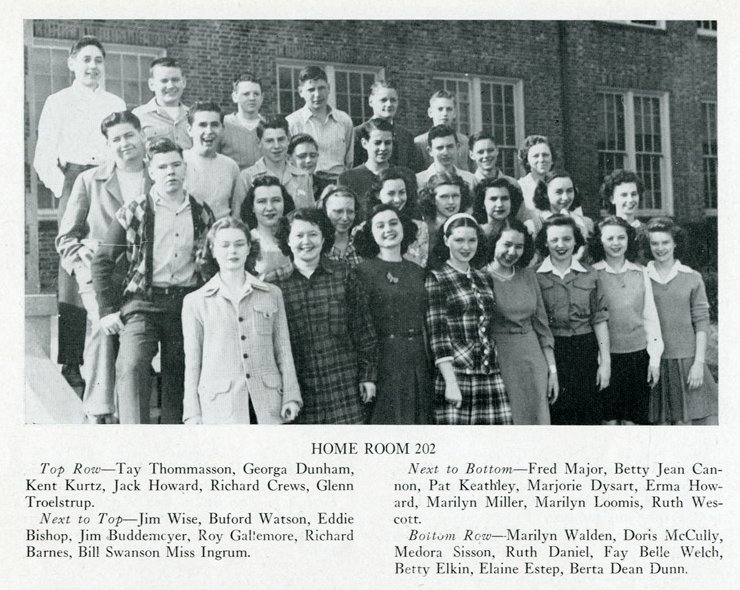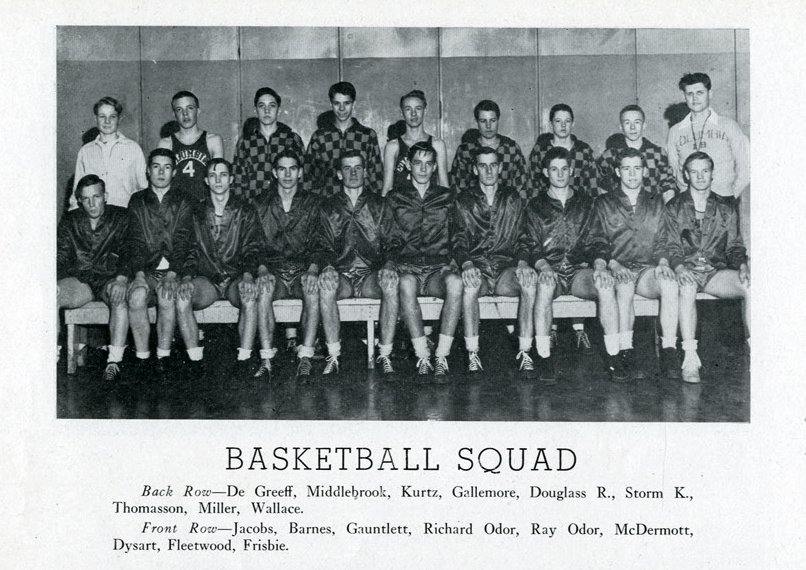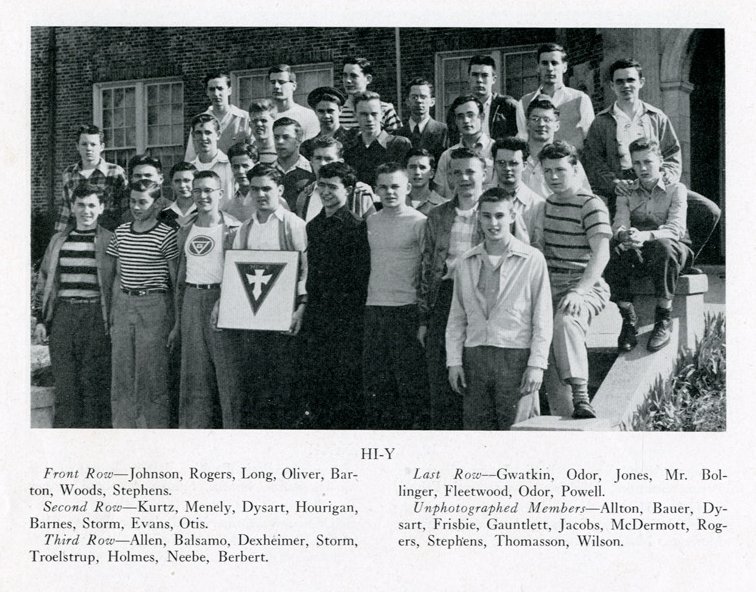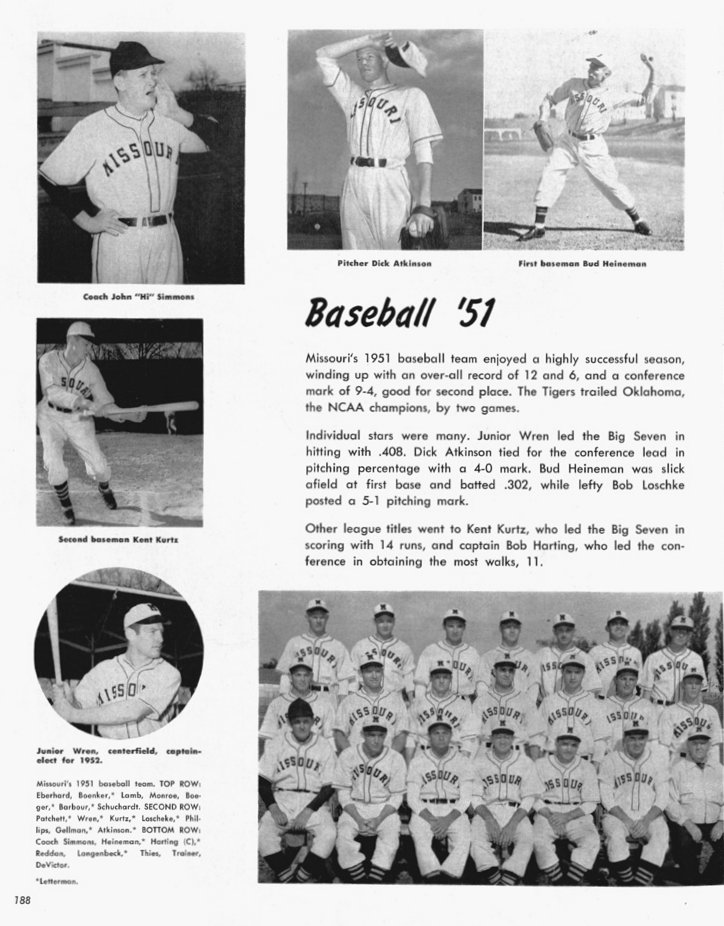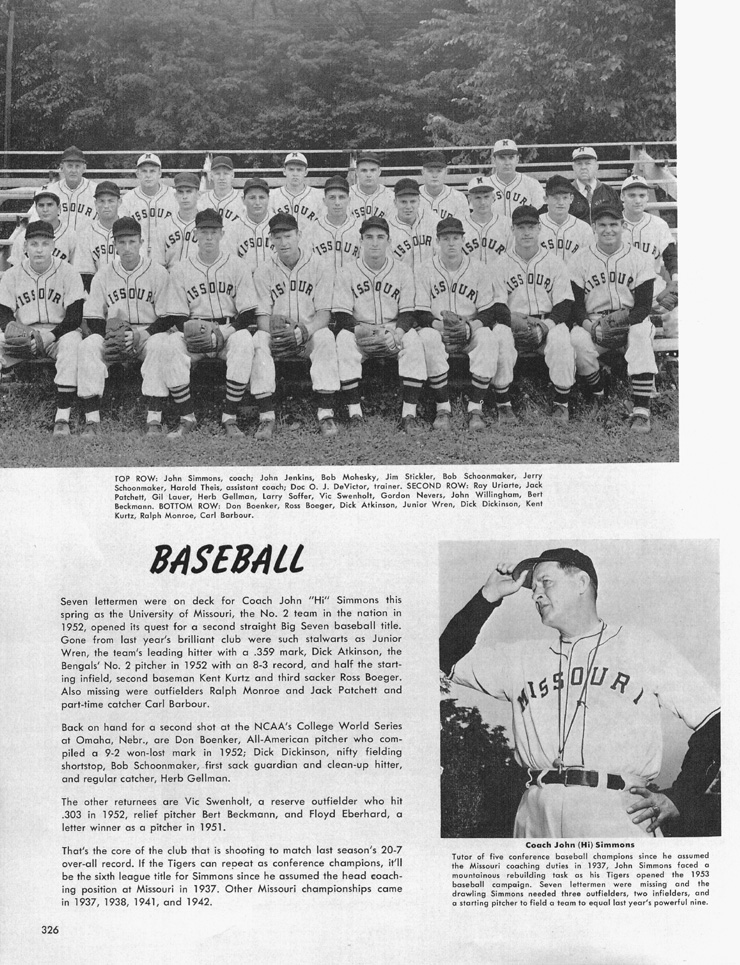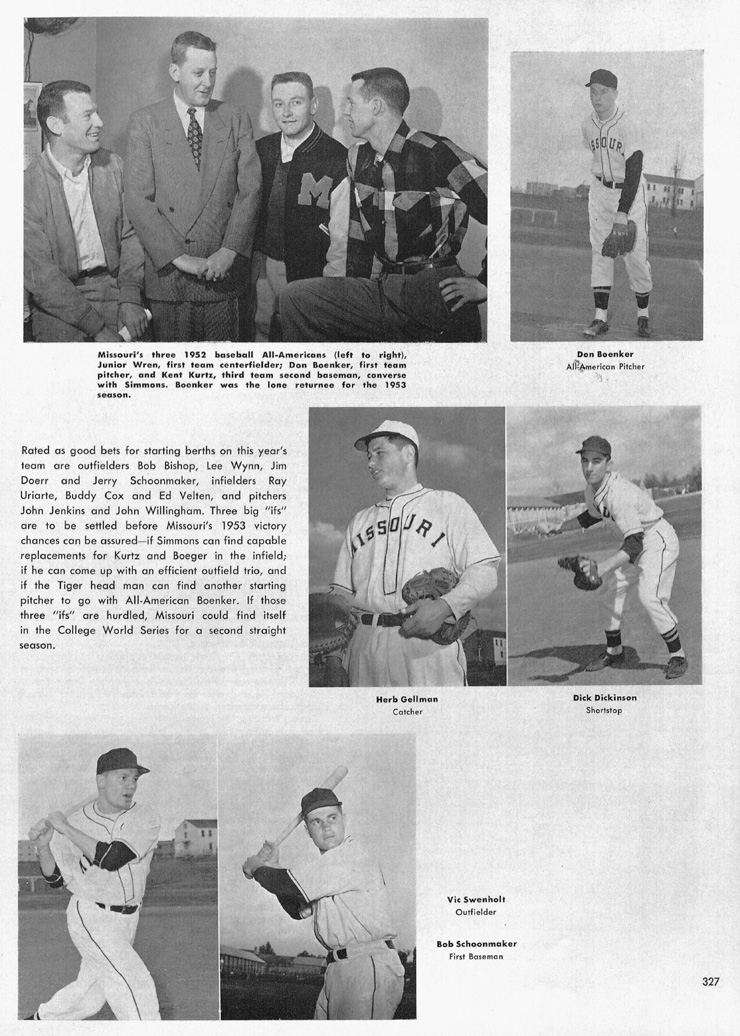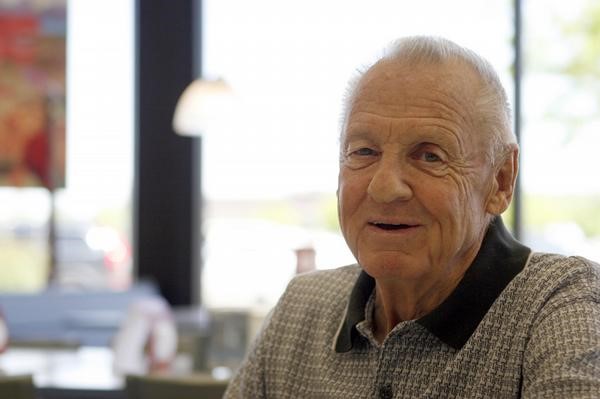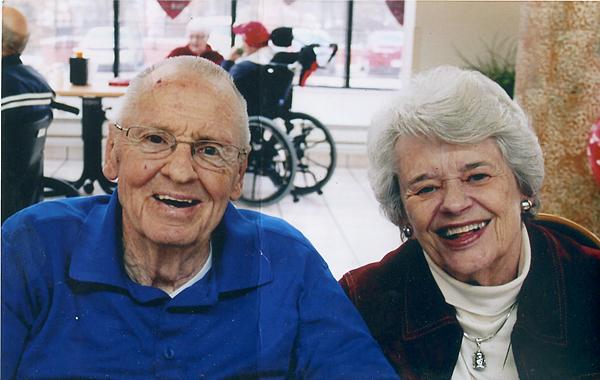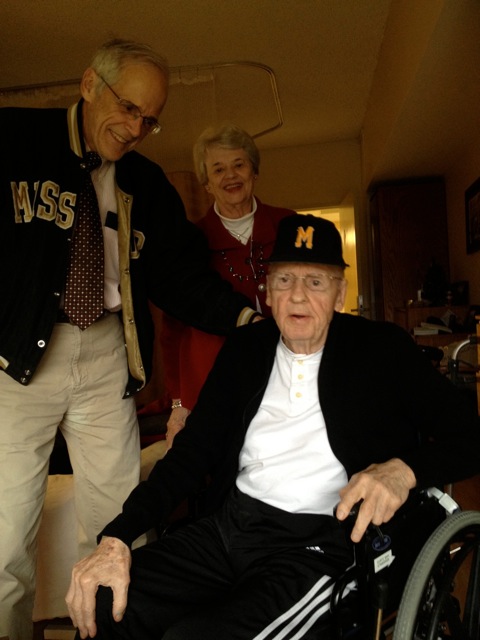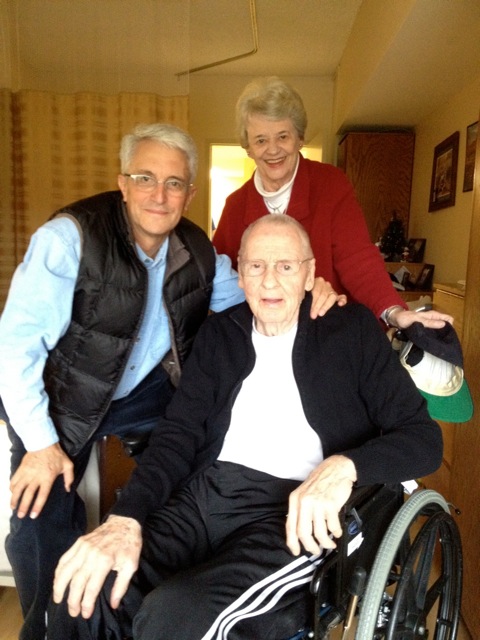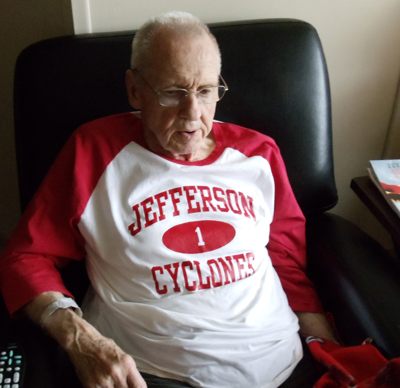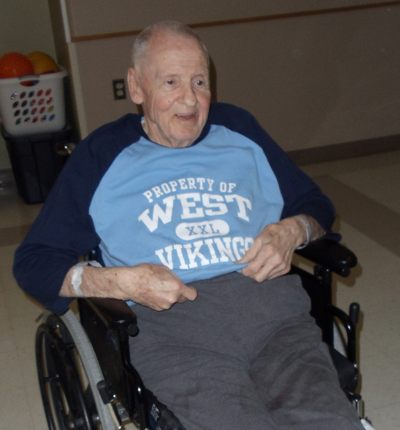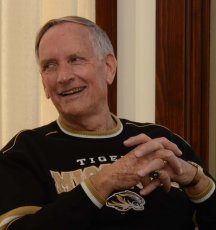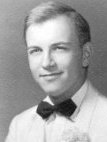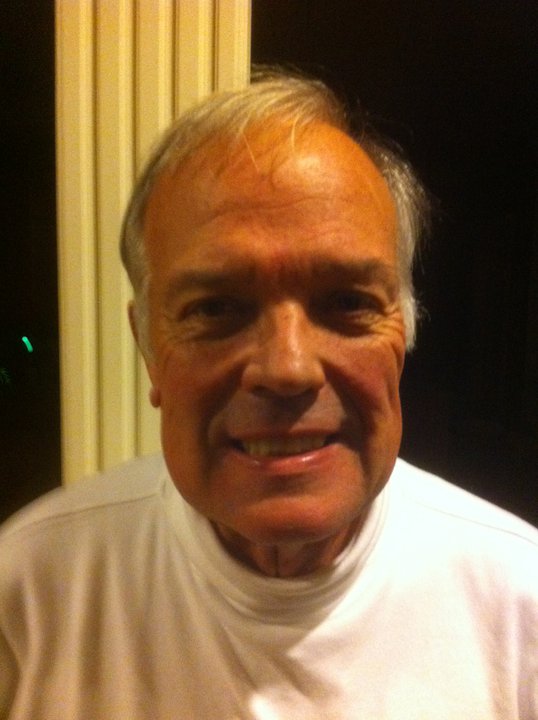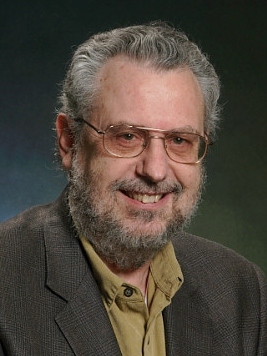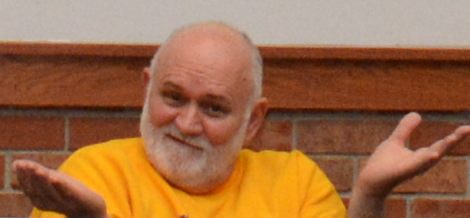RELATED STORIES: Coffee
and camaraderie
Coffee and camaraderie
What started as a gathering of assistant coaches from MU in the
1940s has since turned into a fluid meeting of about a dozen men
every weekday morning at 10.
Sunday, May 25, 2008 | 4:43 p.m.
CDT; updated 9:53 p.m. CDT, Monday, July 21, 2008
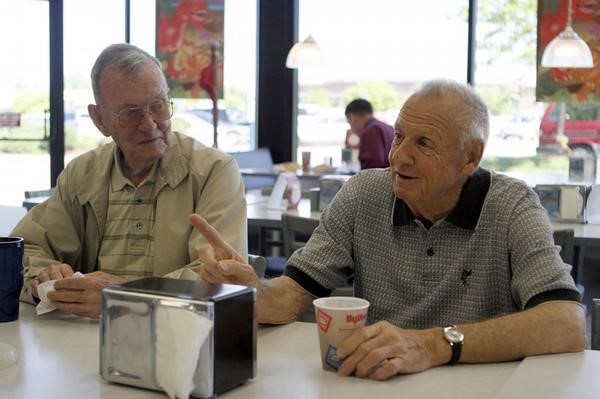
Leo Funk, left, listens to Kent Kurtz's story about playing golf
with his grandson. The two men meet with several other local seniors
every Monday through Friday at the Hy-Vee from 10 a.m. to noon. This
picture was taken on May 20.
BY ALEXA FORNOFF
Scattered among salt and pepper shakers, shiny metal napkin holders
and some yellow marigolds at the Hy-Vee on Broadway, about a dozen
different-sized coffee mugs sitting on five gray and white speckled
tables serve as the placeholders for quite a stately group of
gentlemen.
Leo Funk, a retired banker, points and announces each member of the
group, excitedly telling some highlights of each person’s life.
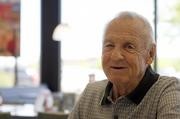 Kent
Kurtz chat during his weekday coffee routine at Hy-Vee.
Kent
Kurtz chat during his weekday coffee routine at Hy-Vee.
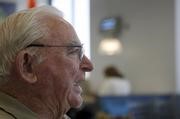 Ralph
"Boot" Stewart listens to his friends chat during their daily coffee
routine at Hy-Vee.
Ralph
"Boot" Stewart listens to his friends chat during their daily coffee
routine at Hy-Vee.
“This guy here was a football player at the university. That one was
a golf pro,” he says, continuing around the table naming a former
principal, several teachers, a basketball player turned real estate
agent — and the list goes on and on.
Ralph “Boot” Stewart, sitting directly to the left of Funk and the
captain of the MU football team in 1946, says the group started out
as a gathering of assistant coaches from the university in the 1940s
and has since turned into a fluid meeting of about a dozen men every
weekday morning at 10.
Quite storied, these men move from topic to topic as fast as a
sideline coach’s hand signals. Different conversations break off
from others; tangents turn into tales about grandchildren and first
jobs, and the coffee sits in its place, with an occasional sip
between punch lines and big finishes.
Flights turn into navigational nightmares, marching bands spell out
“Boot” at Nebraska, grandchildren have exceeded expectations, and
jobs used to pay 25 cents an hour.
But what is most interesting is the element of sports that permeates
this collective, paralleling the founding members of the coffee
group some 60 years later.
Stewart tells of his first game as coach of the University of South
Dakota football team, against Nebraska no less. He explains he was
down to his third string center after one fractured his jaw and the
other went to medical school.
“And that guy snapped the ball over the head of the punter, and it
went 40 yards,” Stewart says, eyes wide, pointing over his shoulder
with his thumb and letting everyone know how far that really is.
“And he was the nephew of George Edwards, the basketball coach and
chair of the physical education department at MU,” and he shakes his
head a little and smiles, still not believing how small this world
really is.
Also connected to the football team is Funk, whose grandson is Adam
Crossett, the placekicker and punter for MU since 2004. When Funk
talks about himself, he rattles off a very short bio — master’s from
MU, banker, then moved to Columbia almost 20 years ago — and then
turns the discussion right to his grandchildren. He beams about the
awards that Crossett has received and also about the successes of
his other equally impressive grandchildren.
But recreational sports attract members of this group, too, and Jim
Craigmile is a weekly participant. He shoots pool every Thursday
morning at the senior center, and when asked if he is any good, he
replies with a tilt of his head and says, “I said I’m supposed to be
playing pool tomorrow.” The other guys around him laugh, too, and
tell him good luck.
“A lot of things are discussed, but nothing is ever decided,”
Stewart says, letting out a hearty chuckle. He touches his blue mug
in front of him but doesn’t take a drink. It’s not really about the
coffee anyway.
Caregivers of people with Alzheimer's face tough choices
COLUMBIA — Sometimes, he still calls her by her name. Sometimes, he calls her "Peach," the nickname he gave her before they were married. Sometimes, he calls her "Mama" when he's confused.
The one thing Paula Kurtz's husband always knows: She is someone who cares about him.
Kent Kurtz has Alzheimer's disease. He's 82 and has lived for the past year in the Mexico Veterans Home.
Paula took care of him in their home in southwest Columbia for five years, making sure he was supervised at all times. She's now 79 and goes to Mexico about four times a week to spend a few hours with her husband.
The Alzheimer's Association estimates there are 5.4 million people in the United States with the disease and more than 15 million unpaid caregivers. Caregivers are often relatives who care for their loved ones in their homes.
The nature of Alzheimer's disease makes providing care particularly difficult, as the disease attacks the brain. Those with Alzheimer's not only lose the ability to store new memories but also the ability to express their needs.
Having a loved one with Alzheimer's means losing that person twice, Paula explained, and in that sense she "lost him a few years ago," she said. And, although the past five years have been rough for her, she continues to care for her husband in any way she can, for both his sake and her own.
Life before Alzheimer's
They met at a Missouri football game in September 1955. She was a senior, and he was a graduate student, an All-American baseball player at MU and had been in the Air Force. She doesn't remember who the Tigers were playing in that game, but according to the Missouri athletics department website, the only home game in September of that year was against Maryland. Missouri lost 13-12.
The two married in 1956. Kent had spent some time as a minor league baseball player around the time he was serving in the Air Force. He then became a teacher and a coach for Columbia Public Schools and was a vice principal of West Junior High when it opened. He became West's principal in the 1960s and was later the district athletics director. He also did a lot of basketball and football officiating, including Big Eight basketball games.
Paula was a fourth-grade teacher in Columbia until she became pregnant with her first child; back then, she said, you couldn't be pregnant and teach. She and Kent had four children, who now live in Kansas City, St. Louis, Salt Lake City and Phoenix, Ariz. When the youngest became a third-grader, Paula became a teacher-librarian. After 12 years in that position, she became a real estate agent.
Kent left Columbia Public Schools to work at the Missouri State High School Activities Association. Paula specifically remembers the huge amount of work he put into the organization, which had a smaller staff at that time. He retired in 1990 as the associate director. Paula retired in 2001.
In 1989, just before retiring, Kent finished his dissertation and earned his doctorate in educational administration. After he retired, he traveled for MU Extension, informing high schools about available MU programs.
Diagnosing the disease
Paula was alert to signs of dementia in Kent because his mother and three of his four sisters had dementia. Two of those sisters, Paula thinks, most likely had Alzheimer's, which is a type of dementia.
When Kent started misplacing objects, losing his place in Columbia and having difficulty calculating tips, Paula wrote a letter to his doctor about her worries. The doctor did some tests and prescribed an introductory medication for dementia. On urging from her doctor, Paula took Kent to a neurologist in January 2007. The neurologist determined Kent had Alzheimer's disease.
Janie Bonham, an early-stage care consultant with the Alzheimer's Association, said Alzheimer's is not often caught in its early stages because of the stigma surrounding the disease.
Family members often deny the symptoms they see because they are frightened by the disease. Many doctors, too, miss the signs, and instead consider them normal signs of aging. Because of this, Bonham said she believes that the estimate of 14,000 people in the 29 counties of the mid-Missouri region who have the disease is low.
Bonham understands denial because she experienced it firsthand. Her mother had Alzheimer's, and she resisted acknowledging the signs herself.
"You think how stupid that is, to be an RN who can’t figure out what’s going on," she said.
Pam Richmond, a family services coordinator with the Alzheimer's Association, said one of the association's goals is to eliminate the stigma so people will address the disease actively, rather than resisting action.
No single process for diagnosing Alzheimer's disease is complete, said Joetta Coen, an associate director of programs and services with the association. Not even brain scans can definitively differentiate Alzheimer's disease from another form of dementia or a different health problem altogether, she said.
So in addition, a comprehensive test is given to those who suspect they might have Alzheimer's disease. The test looks at behaviors, symptoms and history as indicators of whether someone has the disease. Bonham refers many to the Senior Assessment Geriatric Evaluation Clinic at MU, which specializes in testing older people to determine their needs. She said the clinic also makes referrals to the Alzheimer's Association.
Bonham advises people to see a neurologist because Alzheimer's directly affects the brain.
Caregiving
Paula's transition to being a caregiver happened gradually, reflecting the pace of the changes in her husband's illness. She also hired a care manager to help make decisions.
A care manager is someone knowledgeable about the problems older people may face who uses that knowledge to help advise a client and a client's family when making choices. In Paula and Kent's case, their care manager went to medical appointments with them, helping them to understand what the doctor was saying and asking necessary questions.
"I feel like I really got the cream of the crop," Paula said about her care manager. The two have become close over the years, as she gave Paula a lot of support through the process.
Alzheimer's doesn't take effect abruptly. Instead, the person with the disease has good days and bad days and can sometimes compensate around family members and others. But no matter how well he or she may seem, the disease is still lurking. The shifts can add to the stress of caregivers.
"It just creeps; it just destroys the brain," Richmond said about how slowly Alzheimer's affects the brain. She compared the disease's effect on memory to a rewinding video tape that erases as it goes. People with Alzheimer's lose track of what year they are in and how old the people around them should be.
Sometimes, Richmond says, asking questions can help determine where a person is in their history that day. Once that is established, the person's mood can be lifted by playing music from that time period or otherwise acknowledging it. For example, when women believe they are at the age they became mothers, giving them a baby doll will often lighten their moods.
The first big signal for Kent and Paula came the day he called Paula, lost in Columbia. She had to direct him home, and that was the end of his driving.
She didn't start acting as a caregiver full-time until Kent became lost again, this time on his daily walk around their neighborhood. Paula doesn't think he was wandering but that he became confused by the multiple culs-de-sac that mark their neighborhood.
The Alzheimer's Association estimates that six out of 10 people with Alzheimer's will wander and become lost. Wandering is a particularly dangerous consequence of the disease because people can end up far from home, especially in a car rather than on foot, with no idea how to return.
When Paula started making sure Kent was under constant supervision, he still played golf with friends occasionally. During the early stages, she did errands and other personal tasks while he golfed.
Adult day care didn't work for her husband because Paula couldn't get him ready in time. He had begun going to bed late at night and waking up much later in the morning. He also became uncooperative while getting dressed, and she said he was usually not ready for the day until the afternoon — even on days when he woke up early.
Adult day care works much like child day cares, allowing people with Alzheimer's to socialize while left under supervision during the day so their caregivers can work or otherwise get a break. Adult day care is helpful because it can save money, particularly if the primary caregiver is still working, Coen said.
Paula's solution was to hire in-home care. Coen said in-home options are available at different levels, from companions to in-home nurses.
But Kent didn't react well to having people come into the home to watch him, so Paula told him they were around to help her, instead. Having in-home care helped Paula keep up her social life, such as continuing to play bridge. She was unable to host bridge parties at home, as she couldn't control Kent's behavior, but she could still host and attend gatherings elsewhere.
As Kent's condition worsened, Paula faced new challenges. At one point, he stopped recognizing his own reflection, instead thinking an intruder was in the house. Paula covered the large mirrors in her house, but uncurtained windows that take up the entire back wall of her living room still posed problems.
Her husband also started to act as though she had invented the concept of pajamas and actively resisted them. Paula had him wear clothes that could comfortably be worn to bed. She bought him a pair of Puma tennis shoes after he liked a pair a family member wore while visiting them. He got to the point where he wouldn't take those off, either, even to go to bed.
"What I learned is what's important and what's not," she said. "If you want to sleep in your shoes, sleep in your shoes."
Planning ahead
Bonham describes her job as helping keep people at home as long as possible. What this depends on is the safety of both the person and those around him or her, she said.
Short-term memory affects the level of safety; without it, an understanding of the surroundings becomes impaired. For example, Bonham's mother developed the habit of putting a pot of beans on the stove to heat, then forgetting about them.
The well-being of the caregiver is also important in determining whether a person can remain at home. "The health of a caregiver can go down fast," Bonham said.
Richmond said around half of all caregivers become depressed, especially men. She said the unusual sleep patterns and incontinence are particularly difficult for caregivers. Sometimes, the stress becomes so great, the caregiver dies first.
Paula said a support group Richmond hosts for women whose husbands have Alzheimer's helped her realize she needed to take care of herself, as well.
"I think women are inclined to think they can do everything and take care of everything," she said. "I certainly care about him enough that I would."
The Alzheimer's Association advises caregivers to have a plan ready for the next step because movement to a care facility is often spurred by a crisis, Bonham said. Richmond agreed, saying a plan can take pressure off the family during a crisis because the big decisions have already been made.
Some facilities, such as assisted living and intermediate care, can provide a certain level of care and supervision, but once the person needs more, the next step is a nursing home. In that case, Richmond said, an additional plan for that step would be needed.
People in the early stages of Alzheimer's can help make those decisions, Bonham said. He or she can be put on a waiting list, even if the family turns the position down when their turn comes up. Bonham had her mother on a waiting list, and declined placement a few times.
Richmond says she steers families away from promises not to place family members in care facilities, as it often leads to guilt if the promise must be broken.
"It's not necessarily the same person as the disease progresses," Richmond said.
Paula's decision to put her husband on the waiting list for the Mexico Veteran's Home was difficult.
"Everything was an ordeal, and that wears on you after a while," she said. She picked it because it was somewhere she could see Kent being happy. And although it wasn't a top priority for her, it is a third of the price of other nursing homes.
"His room overlooks a baseball field, if you'll believe it," she said. "That just sold me on it."
Paula declined the space the first time his name came to the top of the list, even though his doctor and neurologist both advised it was time for him to be moved to a nursing home. When his name came up again a year later, she accepted.
"I didn't know if I could make it another year," she said.
Continuing to care
Kent has now lost most of his mobility and uses a wheelchair to get around. He also has a lot of difficulty speaking. Most of the sentences he begins are left unfinished.
Paula can't make the trip to Mexico every day but tries to go for a few hours several times a week. Kent's lack of mobility is particularly hard for her to see; after all, he was once an athlete.
She watches Missouri Tigers and St. Louis Cardinals games with him. She isn't sure if he still remembers the rules or if they're his teams, but sometimes he comments on a pass or catch. He doesn't remember being an official.
These days, she tries to visit during his lunch time so she can help him eat because he often becomes distracted. "I'm still committed to him," Paula said. "Some people think I go too often, but it helps me to go."
She still has help. On days she can't go see Kent, a retired nurse who lives in Mexico drops in on him for extra attention and activities.
Paula continues to belong to the support group. She said most of the women in the group still have husbands at home, but several have husbands in care facilities. A few others have husbands in the Mexico Veteran's Home, so they make the trip together.
Paula has found it in herself to be grateful Alzheimer's isn't subjecting Kent to any physical pain. She's also thankful in a bittersweet way that he's been spared the grief of losing family and friends who have died recently.
She doesn't know how his friends are dealing with his condition. Some visit him and spend time with him, but she worries some of them have decided not to visit him because he doesn't know who they are anymore.
"If I could teach anybody anything, it's that if you care about someone, if you give them a little time and attention, it doesn't matter if they know you or not."
Supervising editor is Katherine Reed. from the "Missourian" Columbia, MO
